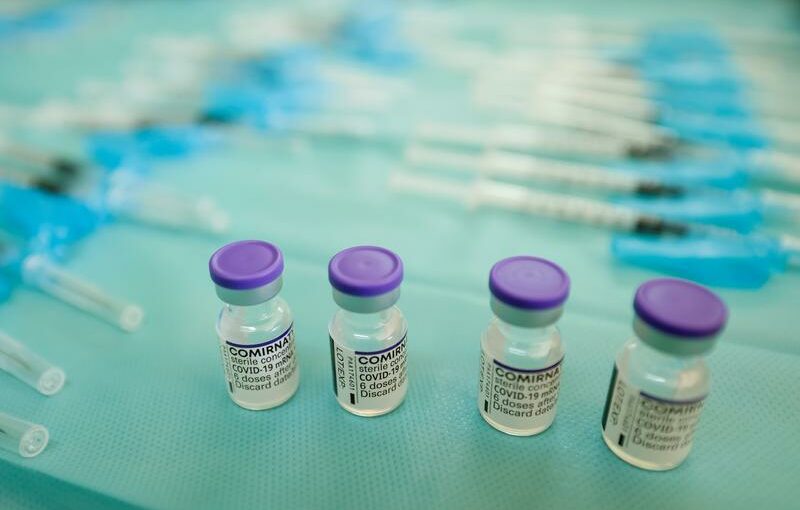(Reuters) – The United States is rolling out booster shots here of the Pfizer Inc and BioNTech SE COVID-19 vaccine for some Americans who received their second jab at least six months ago. The following explains the U.S. Food and Drug Administration and U.S. Centers for Disease Control and Prevention (CDC) decision on who can and should get shots now.
WHICH OLDER AMERICANS SHOULD GET A SHOT AND WHY?
The CDC said people aged 65 and over, which make up nearly 17% of the U.S. population, should get a booster dose of the Pfizer/BioNTech shot now if they previously received that vaccine.
Over 13.6 million people in that age group had received a second dose of the Pfizer/BioNTech vaccine at least six months ago, according to CDC data.
While scientists are divided over the need for a booster dose, data has shown declining protection of the vaccine against hospitalizations in older adults due to the dominance of the highly transmissible Delta variant of the coronavirus. Some studies suggest that vaccine efficacy wanes over time for that group.
WHO QUALIFIES AS “HIGH-RISK”?
The CDC said people aged 50 to 64 with underlying medical conditions should receive a booster, and that it may be given to those aged 18 to 49 based on their individual benefits and risks.
The high-risk medical group includes people who are more susceptible to developing severe COVID-19 such as those with diabetes, cancer, chronic lung disease and certain heart conditions. Smokers and pregnant women are also likely to be eligible for a booster dose, experts say.
The FDA and CDC said that people aged 18 to 64 can be considered to be at high risk based on COVID-19 exposure at work or where they live. They did not define at-risk work and the CDC said boosters are available based on people saying they need one.
The FDA said such workers include those in healthcare settings, teachers and day care staff as well as grocery workers among others. It also said they include people living in homeless shelters or prisons.
The CDC estimates over 50 million people would eventually be eligible for booster shots under such a recommendation, but that figure also includes recipients of the Moderna Inc and Johnson & Johnson vaccines.
WHEN AND WHERE?
White House advisers have said boosters should be available immediately at roughly 80,000 locations nationwide including pharmacies, state vaccination centers and long-term care facilities, at no cost. Residents of nursing homes and other long-term care facilities are on the list of eligible recipients.
Retailers including Walmart Inc and Walgreens Boots Alliance have said they are ready to administer booster shots.
WHAT ABOUT MODERNA AND J&J?
Only Pfizer/BioNTech’s vaccine has been authorized as a third booster dose so far.
Moderna applied to FDA for authorization of a third dose of its vaccine earlier this month. Johnson & Johnson has not yet applied for authorization of what would be a second shot for it’s one-dose vaccine, but has said it plans to do so.
The CDC said it will look to address the recommendations for the Moderna and J&J boosters “with the same sense of urgency,” as the Pfizer/BioNTech vaccine, as soon as the data is available.
Source: Read Full Article
